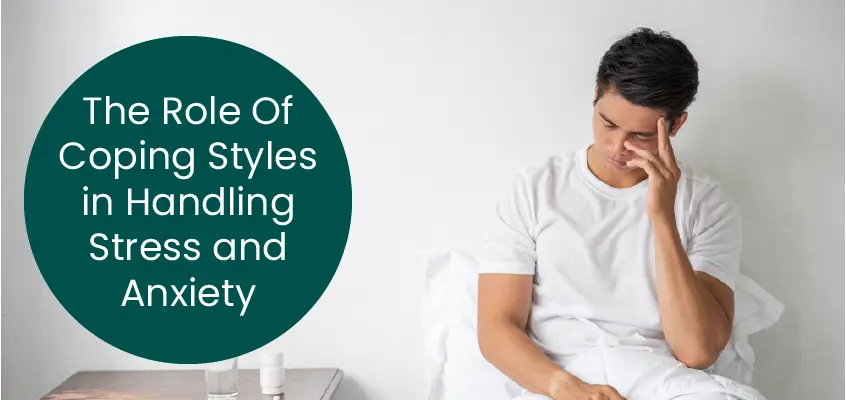Introduction
There are many different ways to cope with stress. Some people prefer to talk about their problems, while others prefer to keep their thoughts to themselves. Some people like to be active and take on new challenges, while others like to relax and take a break from their routines.
No matter your preferred coping style, it is essential to be aware of the available techniques and how they can help you manage stress. This blog post will look at a coping style and some of the most popular coping styles.
What is a coping style?
A coping style is a way of dealing with stress, mental conditions or difficult situations. It can be either positive or negative and can be either helpful or harmful. There are various coping styles and mechanisms, and people often have more than one.
The type of coping styles you use and how effective they are can depend on your personality, life experiences and the support you have available to you.
Benefits of coping
There are many benefits to coping. Coping can help people deal with complex life events, manage stress, and reduce anxiety. It can also help people develop a positive outlook and build resilience.
Coping styles can vary depending on the situation. Some people may use positive coping mechanisms, such as problem-solving or seeking social support, while others may use more negative coping methods, such as denial or avoidance. However, both varieties of coping can be beneficial in different ways.
Positive coping mechanisms often involve active problem-solving and seeking support from others. These strategies can help people feel more in control of their lives and better deal with stressful situations. Additionally, social support can provide a sense of belonging and connectedness, boosting mental health and well-being.
Harmful coping mechanisms such as avoidance or numbing may provide short-term relief from stress but can ultimately make problems worse in the long run. But despite the potential drawbacks of negative coping styles, they can still be helpful in some situations. For example, if someone is experiencing overwhelming grief after a loss, feeling numb emotionally may be necessary to cope with the pain in the short term.
Finding a coping mechanism or strategy that works best for you is essential.
Types of coping styles in psychology
Four major psychological coping styles are problem-focused, emotion-focused, avoidance-focused and acceptance-focused.
Problem-focused: This is when you deal with the stressor directly. You try to find a way to fix and tackle the problem at its root cause. This can be done by solving the issue internally and externally, seeking social support, or using positive self-talk.
Emotion-focused: In this case, you manage your emotions in response to the stressor. It can be done by distracting yourself, venting your feelings, or accepting that the situation is out of your control.
Avoidance-focused: This is when you avoid thinking about or dealing with the stressor altogether. It can be done by procrastinating, obsessing over other things, or numbing your emotions with substance abuse.
Acceptance-focused: Here, accept that the stressor is part of your life and make peace with it. It can be done by focusing on the positive aspects of the situation, practising mindfulness, or letting go of perfectionism.
Best coping styles to manage stress
Stress is one of the biggest problems that people face in this current day and age. As seen above, people use many different coping styles to manage stress. Some people may find that one particular type works best for them, while others may find that a combination of techniques is most effective.
The most important thing is to find what works best for you and to be consistent with your coping strategies. Based on coping styles dictated by psychology, here are four ways you can manage stress:
- One popular coping style is problem-focused coping. Try to find the stressor in your situation and solve or remove it. For example, if you’re stressed about an upcoming deadline at work, you can try to break the task down into smaller parts and set realistic goals for yourself.
- Another standard coping style is emotion-focused coping. It involves accepting the underlying emotions caused by the stressor. For instance, if you’re stressed about a loved one’s illness, you might allow yourself to feel sad and cry when needed. But you will also try to focus on the positive aspects of your life and find ways to enjoy your time despite the stressor.
- A third option is avoidance-focused coping, which involves avoiding anything that reminds you of your stressor. It might mean not watching the news if you’re stressed about world events or avoiding social situations if you’re anxious about meeting new people. While this coping can provide temporary relief, it’s not typically a long-term solution as it doesn’t address the underlying problem.
- Finally, there’s acceptance-based coping, where you accept that the stressor is unavoidable, so you must make the most of your situation. For example, your current job situation may involve long work hours and cause stress, but you can’t quit or switch jobs due to financial problems. In this case, accepting the position would help to manage your stress better.
Conclusion
In conclusion, there is no particular right way to cope with stress, and the important thing is to find what works best for you and to be mindful of your coping style when stressful situations arise. If you find yourself struggling to cope with stress, anxiety or depression, don’t hesitate to reach out to a therapist or counsellor who can assist you in finding healthy coping mechanisms.
United We Care is an online mental healthcare platform with licensed therapists and counsellors who can help you discover the best coping style for your problems. Contact us today.






